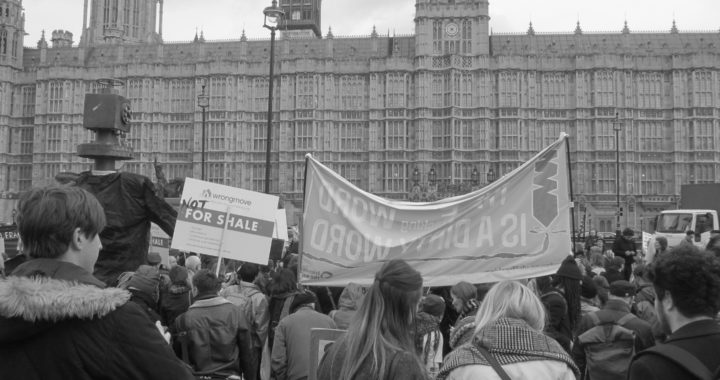If recent rumors are to be believed, a years-long campaign to establish fracking in the United Kingdom will soon come to a grinding halt. Minor tremors at a long-embattled Lancashire drilling site may have put the final nail in the UK fracking coffin. Relentless protests and unceasing anti-fracking sentiment in the nation’s media have turned the tide of public opinion against fracking in the United Kingdom.
Earthquakes in Lancashire
Over the last few months, English newspapers carved out some time in their busy schedules to seize upon a series of tremors plaguing Cuadrilla’s Lancashire drilling site. Long the subject of borderline illegal public protests, the sole UK fracking endeavor may have finally run out of steam.
It doesn’t seem to matter that the quakes themselves were too small to have been felt by even passerby. Indeed, Cuadrilla confirmed, “The equivalent ground motion would be similar to a large bag of shopping dropping to the floor.”
At the end of a virulent cycle of anti-energy propaganda in the United Kingdom, the damage is done.
The PM Weighs In
More often than not, Boris Johnson’s time in the press is focused primarily on the growing Brexit drama. That said, the upswell of public sentiment against hydraulic fracturing has demanded that the rookie prime minister address the UK fracking issue. At least, eventually. The official proclamation will be postponed until officials can conduct a survey of Cuadrilla’s fracking site.
That said, the choice seems to have been made already. Johnson and Parliament have yet to make a formal announcement, though the tone of a recent statement indicates that the government’s mind is made up.
In a statement to the press, Johnson said that his decision would be based on the “very considerable anxieties that are legitimately being raised about the earthquakes that have followed various fracking attempts in the UK.”
There’s little room for mystery in those words.
Good News for US Oil
Though it remains to be seen whether or not the United Kingdom will officially ban fracking, the country’s long-term fracking goals seem unable to get off the ground in any significant way, and public support seems to have shifted away from domestic energy extraction.
Should the United Kingdom kill fracking in the country, the ban will do nothing to curtail the British need for oil and gas. Meeting those needs will require the import of a whole lot of energy. Though there are several potential sellers on the international oil and gas scene, it would appear that the United States is at the top of the list.
Donald Trump has been among Johnson’s loudest supporters, and while the current PM was campaigning, the two world leaders seemed chummy. That could add up to good news for the United States’ booming oil and gas industry.

